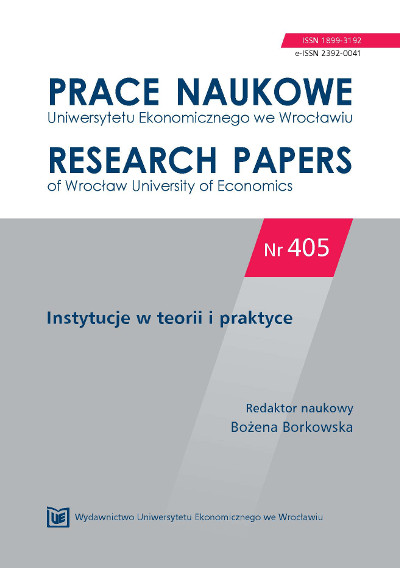Egzekwowanie prawa konkurencji w UE. Kompetencje równoległe instytucji UE i państw członkowskich a zasada pomocniczości
EU competition law enforcement. Parallel competence of EU institutions and the member states vs. the principle of subsidiarity
Author(s): Jerzy ZąbkowiczSubject(s): National Economy, Supranational / Global Economy, Economic policy, Law on Economics
Published by: Wydawnictwo Uniwersytetu Ekonomicznego we Wrocławiu
Keywords: EU competition law; EU competiton rules; national competition authorities; parallel competence; principle of subsidiarity; European Commission
Summary/Abstract: A new system for the application of Articles 101 and 102 TFEU (sc. modernization package, including Regulation 1/2003) which entered into application in May 2004 was considered a landmark reform of antitrust procedures in the EU. The system empowered competition authorities (NCAs) and national courts of the Member States to apply all aspects of the EU competition rules, in addition to the European Commission. The framework of the European Competition Network (ECN) was created to introduce close forms of cooperation between the NCAs and the Commission. However, Regulation 1/2003 did not harmonise procedures and sanctions for the application of the EU competition rules in the Member States. In the opinion of the Commission the level of convergence achieved to date remains fragile. Divergences in national enforcement systems remain on important aspects. Also not all of the NCAs enjoy full operational, organisational and financial independence. All that affects their ability to effectively enforce the EU competition rules. Hence, a number of the provisions contained in the package enabling the Commission to restrict the ability of the NCAs, and even taking away their powers, become especially important. The article is intended to draw attention to the reasons for the modernization package in its current form. The goal is to attempt to answer the question whether the system is really a source of disruptive change in the relationship between the Commission and the NCAs and fully realized in force in the EU principle of subsidiarity. The basis of the analysis are primarily original sources, which consisted of the documents of the EU.
Journal: Prace Naukowe Uniwersytetu Ekonomicznego we Wrocławiu
- Issue Year: 2015
- Issue No: 405
- Page Range: 83-95
- Page Count: 13
- Language: Polish

